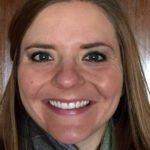According to the National Foundation of Swallowing Disorders, potentially twenty percent of Americans over the age of 50 suffer from some sort of swallowing disorder also known as dysphagia.¹ Still, many of these individuals do not know that they have a problem and are also unaware of services available to decrease their symptoms/difficulty.
According to the American Speech-Language and Hearing Association swallowing difficulties can arise in the following phases:²
- Oral Phase: biting, sucking, or chewing food and moving it around in one’s mouth.
- Pharyngeal Phase: squeezing food down the throat, as well as protecting the airway from liquid/solid exposure causing aspiration or choking.
- Esophageal Phase: squeezing food from the esophagus to the stomach.
Since swallowing is a reflex, it is something that can naturally decline as we age and our muscles become weak. However, dysphagia is most common in those who have had neurological damage such as a stroke, head/neck cancer or injury, or with neurological diseases such as Parkinson’s Disease.
It is important to understand the signs and symptoms of dysphagia as it can be life threatening with complications such as weight loss, malnutrition and pneumonia. According to the National Foundation of Swallowing Disorders, some of the signs/symptoms may include:
- Coughing during or right after swallowing.
- Wet or gurgly vocal quality during or after eating or drinking.
- Extra effort to chew or swallow.
- Food loss from mouth.
- Recurrent pneumonia or congestion after eating.
- Weight loss or dehydration due to not being able to consume enough food/liquid.
A speech-language pathologist (SLP) is trained in assessing and providing intervention for dysphagia. SLP’s can help caregivers and patients understand the swallowing process, as well as offer strategies to make swallowing easier. SLP’s can also assist in determining the safest liquid consistency and solids for a person with dysphagia to consume, and can also offer exercises to increase oral and pharyngeal function.
Live Your Life offers speech pathology services to address and treat swallowing disorders. We can train and educate both patients and families about the risks of dysphagia, as well as provide therapeutic diet analysis and recommendations to increase our patients’ quality of life.
 Rachel Wieneke, M.A., CCC-SLP is a Speech Language Pathologist with Live your LifeTM. She has experience in providing speech therapy to adolescents and adults, with increased focus in providing intervention for a receptive-expressive language, swallowing and cognition. Rachel is also certified in VitalStim Therapy which allows her to utilize neuromuscular electrical stimulation with her swallowing therapy.
Rachel Wieneke, M.A., CCC-SLP is a Speech Language Pathologist with Live your LifeTM. She has experience in providing speech therapy to adolescents and adults, with increased focus in providing intervention for a receptive-expressive language, swallowing and cognition. Rachel is also certified in VitalStim Therapy which allows her to utilize neuromuscular electrical stimulation with her swallowing therapy.
References:
1 Swallowing Disorder Basics. http://swallowingdisorderfoundation.com/about/swallowing-disorder-basics/ Accessed June 13, 2016
2 Swallowing Disorders (Dysphagia) in Adults. http://www.asha.org/public/speech/swallowing/Swallowing-Disorders-in-Adults/ Accessed June 13, 2016
What makes us different? Our care comes to you!
View Our Service AreaWe Are A Comprehensive Mobile Company Focused on Wellness, Fitness, Rehabilitation, and Prevention
We specialize in transforming the lives of seniors, adults and teenagers with a wide array of diagnoses and conditions in their home or location of choice. You deserve to be your best self through good health and wellness. We would love to have the privilege to work with you or a loved one.
Request a FREE Consultation Today!
